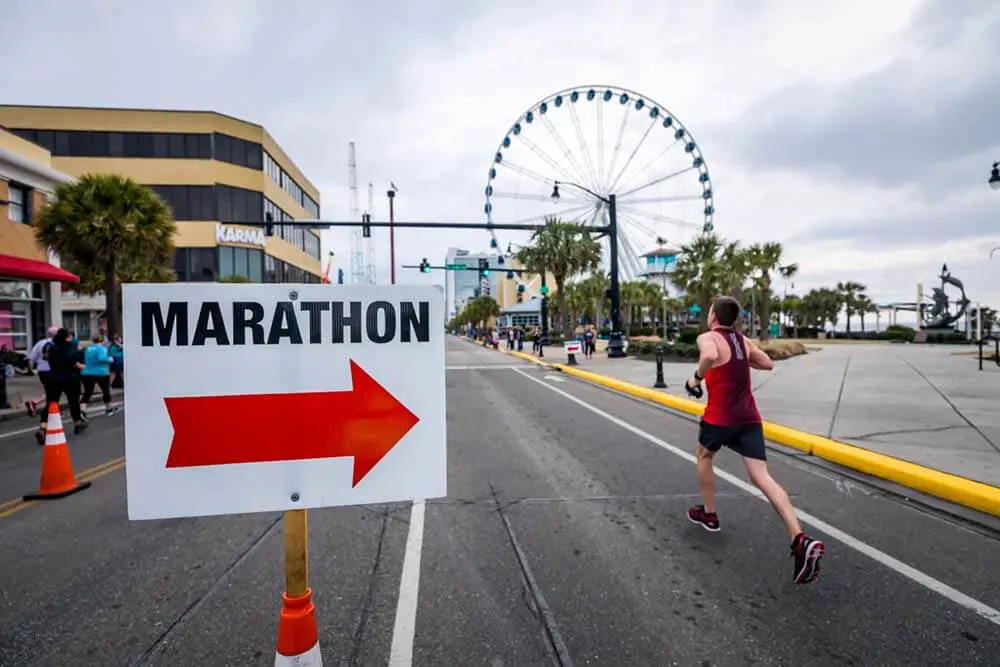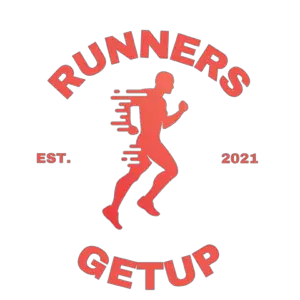This post contains affiliate links.

You’re within the last few days before a race and you’re planning out how you’re going to prepare your body for it. You feel like going for a run just the day before your race but you’re wondering how it’ll affect your race day performance.
As a general rule, you should run 20 to 30 minutes at an easy pace the day before a race. It will help keep you relaxed and improve blood flow to your muscles which can boost recovery and loosen up your muscles. Some runners also recommend doing 20-second strides at a race pace for three to six sets.
But there’s more to that. Not everyone does the same thing the day before a race. You might want to consider a few factors that will help you decide whether you should run or not. And, at the end of this article, we will look at what other runners of different levels say about running the day before a race. Stick along cause this article is packed with information.
Why You Should Run The Day Before The Race
You’ve trained extensively for a couple of months now. You’re finally a few days before the race day. You’re very excited and you feel like going for a run just a day before the race. You’ve read this article and found out that’s it’s okay to do so as long as you run at an easy pace.
Then you’d probably ask why should you run before the race and what are the benefits of doing it?
Well, for one it calms you down. The feeling of the “race day” fast approaching can wreak havoc on your mental game. You feel the infamous “butterflies in your stomach” and you feel like you’re just a few hours away from torture (especially the idea of trying to run 5-10k as fast as you can – yuck!).
Doing a shakeout run a day before the race will give you a sense of confidence that you’re going to be just fine. Plus, it will help you sleep well at night by making you less anxious.
Running the day before a race also reinforces your neuromuscular connection. This run is not intended to make you stronger or faster. It’s intended to reinforce what you’ve already practiced so your body maintains the connection between your mind and your muscles.
For high-mileage runners, it’s also a way of sticking to your routine. You’ve already been running almost every day in training. The worst thing you can do is to stray away from that routine because of the fear of not being able to recover from a short run. I mean, if you were able to recover from training with a recovery run, there’s absolutely no reason for you not to recover from a short run a day before the race.
The reason behind this recovery run is that low-intensity running flushes out the lactic acid in your legs and improves blood flow, therefore, supplying the much-needed nutrients to boost recovery.
And while you’re at it, take this chance to try the route. You’re not trying to finish the whole route nor are you trying to run at your race pace, the idea is to get the feel of the road (or trail) and familiarize the route (very helpful for trail runners).
In summary, the benefits of running the day before a race include:
- It calms you down for race day
- Reinforces neuromuscular connection
- It’s a way of sticking to your routine
- It improves blood flow to your muscles delivering the much-needed nutrients to boost recovery
- Running the route helps you familiarize the terrain running conditions
Tips For Running The Day Before a Race
Really, there’s no one way of doing it. It’s different for every runner and it’s different for every distance. However, I can give you a few recommendations and workout ideas that you can try. If it works for you, feel free to take it as your “pre-game ritual”, if not, then you should do something else.
In general, you should never try to run the race the way you’d run it in the competition. It will make you fatigue and it can negatively impact your race-day performance. What you should do is run half your regular training mileage and run it at an easy pace.
For short distances (5k to10k), you’re more likely to try to run fast on race day (like a tempo run), therefore, your legs NEED to be more fresh and recovered. So here’s what I recommend:
For 5 to 10k
10 mins dynamic stretching
20-30 mins run at an easy pace (I’d walk the first and last 3 mins)
10 mins static stretch
*Do 3 sets of 20s strides at race pace within that time frame (optional)
For a half marathon, the pace of your run will vary. Most elite athletes can run this pretty fast, while others may take forever to finish it. So really, the pre-race day workout will vary. Here’s what I would do a day before a half marathon and a marathon.
For Half marathon
10 mins routine warm-up
1-2 miles at an easy pace
20 min static stretch
*I might also do 4-6 sets of 20s strides at a race pace if I’m any faster in training but I don’t see it as a MUST at my level because I’m probably going to run the half marathon at an easy pace all the way.
I can’t share with you a personal pre-race day workout for a marathon cause frankly I have never tried to do a shakeout run before a marathon.
But an athlete who shared his pre-race day workout routine on Reddit showed something very similar to the ones I shared above.
For Marathon
3 miles run at an easy pace
*4 sets of 200m strides at 5k pace within the 3 miles.
These are just suggestions and there’s no way of really knowing whether this would work for you or not other than trying it for yourself.
You should be able to get an idea of how your body reacts to a shakeout run by going back to how you feel the day after a recovery run.
If a recovery run helped you recover from training, then you can be quite positive that a shakeout run will be fine.
However, some runners don’t seem to recover well from a recovery run (probably because their easy run isn’t easy at all) and if you’re one of those types of runners, then you should consider getting a full rest or just a very short 10 min workout a day before the race.
Use the workouts I showed you above as a reference as to what is possible. Ultimately, what you do before the race will come down to your current fitness level, your preference, and the distance you’re running in.
What you do the day before the race will come down to your current level of fitness, your preference and the distance you’re running in.
Runners Getup
In almost all cases, you should take your post-workout carbs to replace the glycogen you used after a workout. Bananas are a great source, however, that’s not the only source. Sneakers, orange juice, and sodas can pump your muscles with much-needed glycogen after your workout.
By the way, if you’re new to the distance you’re about to run, you should expect chafing and how to prepare for it. I’ve made an article that shows you exactly how to prevent chafing. check it out.
What Do Runners Do Before a Race? (Runners Share Their Thoughts)
I’ve mentioned that different runners do different things a day before a race. So I went into forums and grabbed their thoughts on what runners of different levels do a few days before the race.
A Reddit user mentioned that his legs feel like crap if he takes a full day rest a day prior to race day. He added doing a short low intensity run with a few strides worked best for him for most distances.
Not all runners agree with running the day before a race, though. Another Reddit user named Chillin_Dylan said taking a full 2 days rest is his go-to pre-race day routine.
One user, however, went into detail by explaining that low mileage runners (those who run 3-4x a week) are fine with taking a day off because the “race day” will be in line with his training schedule.
He went on to point out that when he increased his weekly mileage (in training), he found that a short easy run with a few strides the day before a race kept him sharper than taking a rest day did.
Another thread on Reddit asked “rest day vs easy day before a marathon” shared very similar responses.
The person who asked the question had a workout routine a day before a race which is resting two days before the race and a 20-min easy run the day before the race. However, he was intrigued with the consensus of the runners in his area who are taking 2 days off, so he tried it.
His body seemed to go into haywire. He said that on race day, his leg got tired for no apparent reason then after 20 mins, they were fine. At the end of the race, he experienced cramps.
Most of the runners on this thread (which are marathon runners) seem to agree that it’s different for everyone, but most of them (with an exemption of 2 out of 10) run the day before a marathon race.
This just shows how different it is for every person. For some, running before a race seems to up their game, and for some, the rest days are the key to their performance.
I’ve said it in the previous portion of this article but it’s worth saying again: It all comes down to preference.
Key Takeaways
This article is quite long for such a small topic, so I thought I could give you a few takeaways in bullet form so you can take the major points of this article.
- Running the day before a race is fine, but you should experiment with a routine that works best for you
- Running the day before a race offers multiple benefits including making you calm, increases blood flow, maintain neuromuscular connection and getting familiar with the route.
- Keep your pace easy with a few sets of race pace strides
- Get an idea of how you perform running back to back days by going back to how you feel on training.

